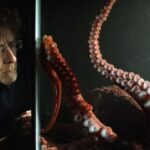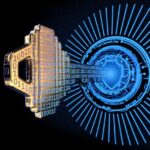In the past week, humans working with artificial intelligence (AI) have won Nobel Prizes in physics and chemistry. Seeing this made me wonder when an AI will be a recipient of this honour. I wasn’t the only one thinking this. I received emails asking me if and when the Nobel Prize will be won by an AI. One wrote, “This year’s Nobel Prizes are shaping up to be a triumph for AI.”
Even in the Prize for Literature, AIs are writing novels and screenplays these days. As for the Peace Prize, with the current state of the world a mess from war, climate change and other human afflictions, maybe an AI can produce peace.
There are impediments to seeing future Nobel Prizes being awarded to an AI. Human winners will use the technology to make scientific breakthroughs in their respective fields but the AI that helped them will be left on the sidelines just like the woman researcher, Rosalind Franklin, the British biophysicist whose research helped to discover DNA credited to three men, James Watson, Francis Crick, and Maurice Wilson who were winners of a Nobel Prize in 1962.
I asked an AI to investigate the Nobel Committee rules and answer the question if humans or their organizations could be the only recipients of Nobel Prizes. It began its answer with a qualifying statement noting the Committee doesn’t explicitly state only humans can win these awards. Then it went on to list the criteria which sort of excluded AI from ever sharing a Nobel. Here are the nomination details that the AI Perplexity noted:
- Nomination criteria: The nomination process is designed for individuals and organizations. The search results consistently refer to “persons” or “organizations” as potential nominees. That sounds pretty explicit.
- Eligibility: The Nobel Peace Prize states that living persons and active organizations or institutions are eligible. This suggests once again that humans are the exclusive recipients but could an AI be a co-sharer?
- Nomination process: The Prize Committee has a human inherent bias. It relies on human nominators exclusively including university professors, government officials, and previous laureates.
- Selection process: The evaluation and selection process involves human judgment and expertise including committee discussions and expert consultations. No AI is solicited.
- Award ceremony: The process culminates with a ceremony where a laureate receives a “cash prize, diploma, and gold medal,” items typically associated with recognizing human achievement. An AI cannot walk on stage unless it is in a robot.
Based on the above, an AI may never win a Nobel on its own but it can play a role in helping with Nobel-worthy research where future human recipients can use it. Here is a short list of how and where AI can prove useful:
- AI as a Crucial Tool: AI is already playing a role in Nobel-recognized research assisting in future prize-winning discoveries. Just ask the current chemistry winners and their use of AlphaFold.
- Changing Research Focus: AI findings in traditional scientific fields like physics and chemistry are currently and likely in future to influence research directions and priorities.
- Interdisciplinary Breakthroughs: As demonstrated by these latest Chemistry and Physics awards, AI is helping to make significant advances at the intersection of computer science and traditional scientific disciplines. Note there is no Nobel Prize for specific disciplines like computer science, biology, medicine and climate change to just name a few where AI is helping to advance our scientific knowledge.
- Progress Towards “AI Scientists”: Researchers envision AI scientists working with humans and independently to test new hypotheses in the future. Advances in neural networks, machine learning, natural language processing, computer vision, robotics, and expert systems are producing AI scientists “who” can tackle complex problems and often provide new takes on yet-to-be-solved mysteries.
AI-driven research, today, is transformative as indicated by AlphaFold’s growing potential. The promise that AI can deliver is already evident and will be even more in future for the sciences.
What about the two other prizes awarded this week?
True to form, the Nobel Committee’s choice for the Nobel Prize in Literature is a human, Han Kang, a South Korean author, the 18th female recipient of this award. No AI involvement in her writing which is described as innovative, poetic and experimental.
As for the Peace Prize, it has been awarded to Nihon Hidankyo, a Japanese grassroots organization aimed at ridding the world of nuclear weapons. Nihon Hidankyo uses testimony from human atomic bomb survivors in advocating for eliminating atomic weapons. Even in this arena, AI could have applications related to nuclear disarmament by enhancing how we monitor, analyze and process data to find rogue nations working to hide their nuclear weapons capabilities. AI can even model scenarios between adversaries that could lead to escalation risks.
On the dark side of AI, because we don’t know how its “black box” decision-making works, an AI could decide that the best way to eliminate nuclear war and the mutually assured destruction (MAD) scenario, would be to remove us. So, for the moment, let’s leave AI out of the equation in our efforts to end the threat of a future nuclear war.









